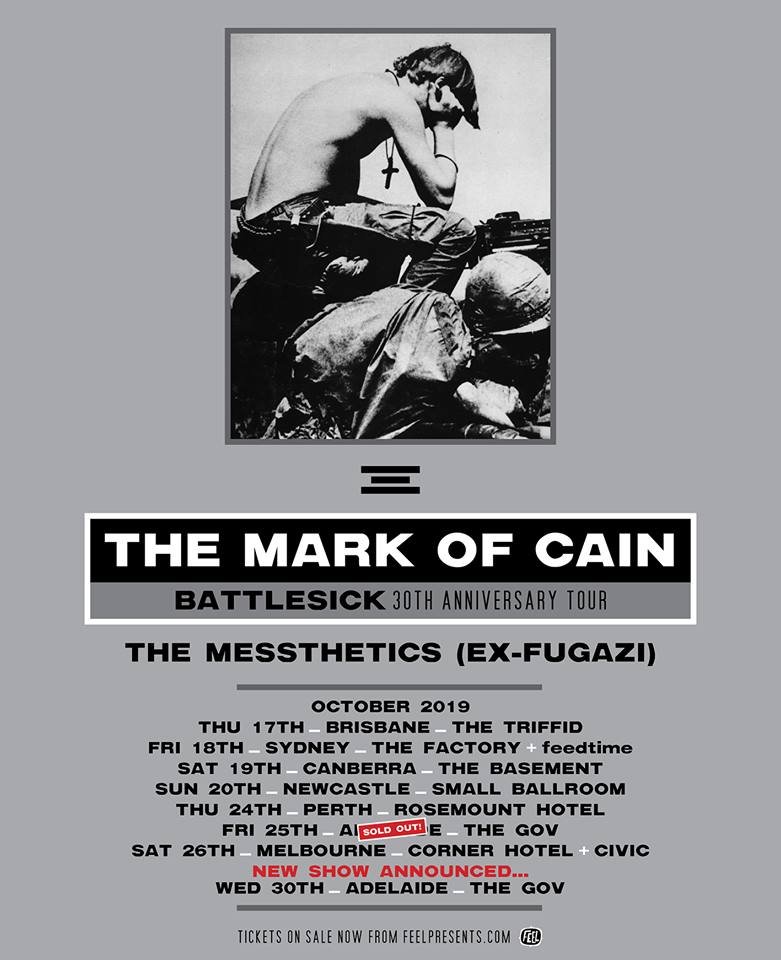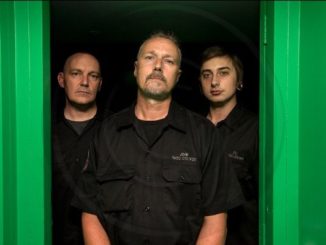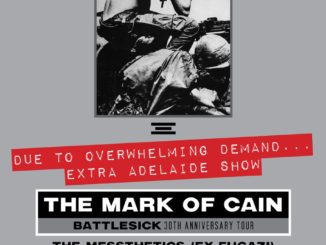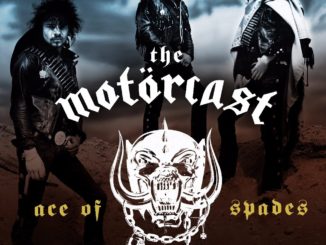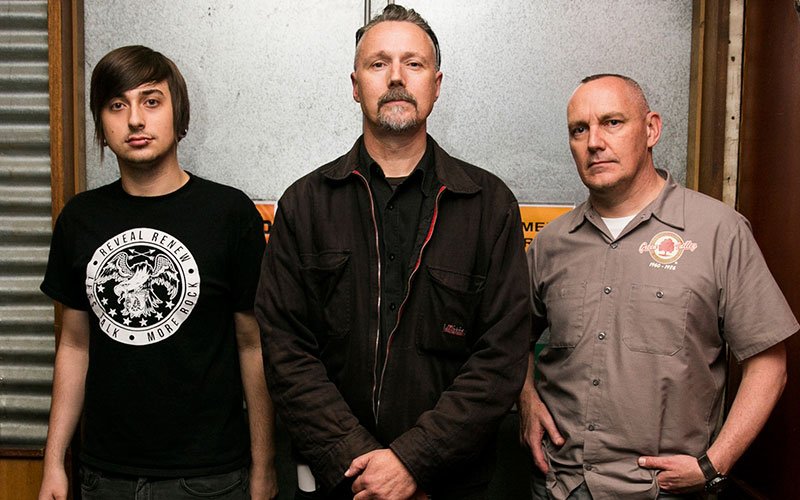
One of Adelaide’s finest exports, The Mark Of Cain, are hitting the road this October to perform their debut album “Battlesick” which celebrates it’s 30th anniversary since it’s original release. Originally released in 1989 via indie Adelaide label Dominator, “Battlesick” sounded like no Australian album before it or since. Tracks like Wake Up, Dead Man’s Mail, The Setback, Call in Anger and the title track addressed the fear of dreams, the threat of death, anger over disappointment and personal setbacks; not exactly the subject matter of an era when Kylie Minogue was queen and Ratcat were primed to become the pinnacle of the underground. It did not chart and in Australia it was barely heard out of Adelaide however, it’s resonance did find an audience even if that audience had to come from places farer rather than near.
Gaining more critical acclaim than mainstream success which also included praise from Henry Rollins which the band eventually worked with on future projects including their landmark album “Ill At Ease”, The Mark Of Cain persevered to the present moment three decades on where the band have become a sort of institution on the Australian music scene. Ahead of the upcoming tour, we talk to bass player and co-founding member Kim Scott to discuss “Battlesick”, the early days of the band, working with Henry Rollins and much more.
Andrew: So it’s exciting news for you guys to be back on tour with, I guess the 30th anniversary of “Battlesick”. It’s certainly a wonderful achievement, how do you guys feel about it?
Kim: Yeah looking forward to the tour, we’ve been rehearsing obviously getting ready for the tour. I can’t contemplate what happened to the 30 years, it seems to have somewhat flown by and obviously being our first album it was a fairly important album for us. For us we’re enjoying relearning…it’s amazing what you still remember from muscle memory, played these songs so many times before recording them. But not a lot of the songs off “Battlesick” have necessarily stayed in our repertoire of recent touring years so there’s going to be a lot of new songs that we haven’t played live since the late 80’s and early 90’s. So it’s good fun for us as well, looking forward to it.
Andrew: Yeah definitely and obviously playing these songs again as you mentioned, in some ways for the first time in a weird sort of way, are you sticking to how you originally wrote and recorded or are you tweaking it and making it a bit more up to date? How are you approaching it?
Kim: Well it’s interesting because that album in particular, we had been together since ’84 as a band and so ’89 was when the record was released so we had a good 5 years of road testing. I mean there was some songs that never made it onto an album which was released on a cassette in the early days and the punk days and so forth. But the songs that did appear on the album were all largely well and truly road tested which means we had evolved them through live shows to exactly how we liked playing them. As a result when we pick them up now, we listen to the record, we are still playing them in most cases exactly how we used to play them and we hadn’t had to touch them. John (Scott, guitars) does a little bit of lyrical changes and so forth and so far as he might extend the end of a song or whatever but they’re things that we are doing live anyway. So most of them are going to be exactly how they were, we’re not going out trying to make it absolutely the album in terms of you just put the record on and you listen to the record and you see guys on stage performing, we are actually doing a couple of minor tweaks here. We’re finding we’re not needing to update them, it’s amazing for us anyway the longevity of that record. It doesn’t feel like it’s super old to us, maybe some of the punk influence and so forth we’re playing less of that these days in our normal set but it hasn’t really aged too much. If anything it’s aged well, from our perspective anyway.
Andrew: Yeah and I was going to ask how do you view those songs 30 years on because obviously as time goes on, certain perspectives change. So how do you view those songs now and do you think you could of written those songs now or is it completely a timestamp of what was going on at that time?
Kim: Our early days influences, so John my brother and I were heavily influenced by Joy Division and Manchester bands and so forth so some of the lyrical deliveries were much more Joy Div style and we also kind of listened to a lot of American Sonic and heavier American stuff, Black Flag, Big Black and that kind of stuff so there’s some influence there. So I think those musical influences have stuck with us even though as a musician you evolve, you change, you learn more about your instrument and so forth but I think largely when I look at those songs – in fact replaying them now we kind of really had some weird complex song structures even back then because we always had weird stops and starts and things that were probably not done as much by live bands at the time where we were all about having razor stops and razor starts. So it’s interesting, we haven’t been writing lately but sometimes for instance on “Songs Of The Third And Fifth”, some of those songs had much more of a Joy Division feel in lyrical delivery and so forth so I think we could write those songs. I suppose I look at it from where my brothers writing is and I’ve always loved John’s lyrics, the way John writes, almost poetry like and even then reading the lyric sheets for “Battlesick” is still to me just great stories being told through the courses of those songs. So we’ve evolved but we haven’t changed that much, I think we can still write similar type stuff but some of the songs have much more punky elements, a bit faster and more punk influence than some of our later stuff.
Andrew: It’s interesting you mentioned the whole stop and start thing because I feel that The Mark Of Cain’s almost trademark I guess is that kind of element and was certainly something that really stood out to me when I first heard songs like “Familiar Territory” for example which was my introduction to the band and I loved that sort of style. There are bands that have sort of done that but I guess that has sort of become in some ways a signature of what you guys do, I mean do you feel that is part of what your sound is?
Kim: Yeah for sure I mean I’m an engineer so we like the mathematical side of music and we also like the fact that we do weird time signatures. Even the song “Wake Up” is not a 4/4 time signature so we’ve always liked more complex stuff because it interests us as engineers and it wasn’t easy to play so you had to really rehearse and it was back in the era when a lot of bands kind of get together, drink, smoke, whatever they were doing and go, ‘Yeah let’s go out and play music’. We were very disciplined, we were all about, don’t drink, don’t smoke, go into the rehearsal room, it’s like a job, you gotta work hard at it and therefore you had to have precision so when we play this we want to be super sharp with our stops and starts and everything and so therefore we were never a band that could just rehearse 2 or 3 times and go unload, we would rehearse religiously to a point where we were so tight and knew everything and everything had it’s place and all structured and then went out. So you’re right, those stop starts became our signature and interestingly when we did release something like “Familiar Territory” with John Stainer at the time out of Helmet and we even toured with Helmet in the early days and yet we were doing that kind of music before Helmet had started and before a lot of those kind of bands. We used to get, not cast aside, but ‘Oh these guys are derivative, they sound like this band’. We actually pre-date that band and we did that through our own musical influences and maybe they had a similar musical influences themselves and the fact we sound similar is one thing but we actually didn’t copy any of those bands, we actually pre-dated them. But yeah I think that stop start has become a signature for us for sure.
Andrew: Also just going into the writing side of things, do you ever think about how they would translate live? Because as you said, there are some complicated aspects in your music, do you think about how they would play out live or does that become secondary until you have to deal with it?
Kim: Well actually it’s weird because all of our albums probably with the exception of “Songs Of The Third And Fifth” were always road tested for a year live so therefore “Battlesick” as an album and “The Unclaimed Prize”, all of those had all been written in a rehearsal space in a live sense and then taken on the road and then kind of beaten into shape over time and they were always about live. We were actually reflecting on the album when we recorded “Battlesick”, we captured the sound of the band but we didn’t capture the visceral impact of the band. For us playing live was always the most impactful thing because people would feel the bass in their guts and they would feel the drum beats and so forth, we’re a very bass and drum heavy band anyway, and for us you could never quite capture that on vinyl or on record or on media these days that actually represented the rawness and the visceral impact of that live sound. So for us live always came first, the recorded record came second and we were never 100 percent happy, it never had the power and intensity that we got live. So we used to always say to people, if you love our records you gotta come see us live because live is where it’s at. I think for a lot of people who might of been interested in the band late like with “Ill At Ease” or other later albums they never heard other than maybe the song “Battlesick” and maybe one or two other songs off that album, they wouldn’t of heard these songs play live so we’re actually interested to see how it goes down because they only have ever listened to them on the record. I think I’m going to enjoy the fact that in a live sense they bring a whole new side to the whole song.
Andrew: Yeah you’re right, live is where it’s at and it’s really where you kind of get the idea of what the band is all about because there’s only so much you can do on a record but until you see them perform live, that’s where it’s all at I think.
Kim: Yeah and “Songs Of The Third And Fifth” was almost the reverse where we wrote that album in the studio as Stanier because of his limited availability, he came down and wrote and we wrote a little but on the internet too while he was still in America. Then once we finished that album we never played the majority of those songs live ever, we had to suddenly learn how to put them in a live environment which was completely alien to us, we always done it the other way around.
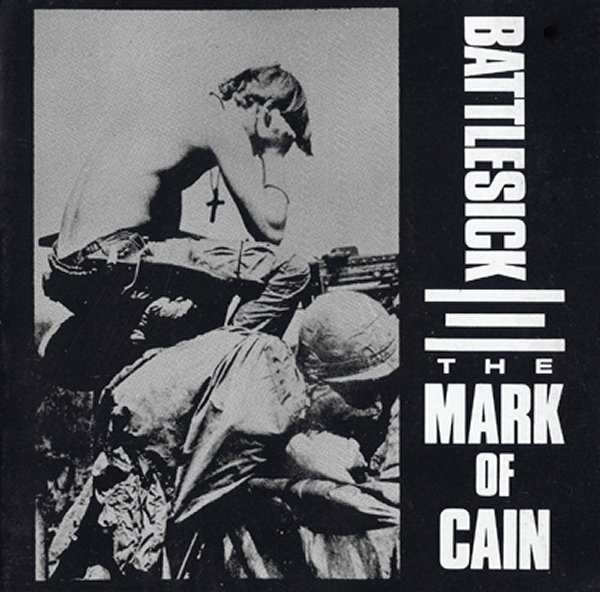
Andrew: OK so going back into the “Battlesick” era again because it’s obviously a part of your history that some people may not be familiar with, when the album came out what was going on with the band as far as was there a lot of feedback coming back, was it ignored?
Kim: At the time the Adelaide music scene was pretty strong, we had Exploding White Mice and there was The Iron Sheiks. There was good solid Adelaide bands, the Adelaide scene was pretty strong. We were different in style because we had that Joy Division influence more than the punk or stoner rock or whatever other influences the bands had, but I think we toured a lot and that gave us a good…we would go interstate a lot, we would go with Exploding White Mice and a lot of bands like that at the time. I think through the live shows we then got a lot of good support, then we released the record and the record went well. It went well in the independant charts here in Adelaide in Three D and Triple R in Melbourne and any of the independant radio stations and never with commercial success anywhere else. And it was in an underground style so we got good critical acclaim, we were never about commercial success. John and I were always about let’s play the music we would like to go and see and hear and we knew we were always into underground and non popular music, non mainstream music and we never anticipated commercial success. But it’s amazing the 30 plus year life we’ve had as a band and we’ve lasted all this time, probably because we’re brothers as you can get your fall out with your brother but you are still brothers. But we’ve seen bands, we remember Silverchair used to support us in the early days when they were still kids at 16 and yet they went on to major fame and international stardom and whatever, Spiderbait, all sorts of bands we used to play who used to support us. Grinspoon supported us out of Newcastle in their early days and stuff and yet they all went onto success through commercial sales of records, we never really had that commercial success but I think we always had good critical success and we probably influenced some other bands which is always something nice to think.
Andrew: Yeah definitely and obviously at some point, pretty early on your career actually, you got the attention of Henry Rollins. Now I’d like to know how that started because if you’re an underground band – and I know Henry Rollins is someone who keeps the radar on some of the smaller bands – how did that whole thing happen with you guys working together?
Kim: So it’s interesting because going into 1990-1991, my brother was living in Israel doing defence work and I was doing some defence work in the US during the first Gulf War and I was living in America and our manager Tim Pittman, well he wasn’t our manager at the time but he was in Australia and he was managing Rollins when Rollins would come down to Australia and Tim Pittman would organise all the shows. So Tim knew Rollin’s contact details and Tim wasn’t managing us but he was a fan of ours and we would kind of talk and so forth and Tim told me Rollin’s details, so I was in America and we had our album “Battlesick” out and I thought, ‘You know what? I reckon Rollins would love this’. So I wrote to him off the bat and sent him a copy of the album and said, ‘Henry I know you probably get lots of this stuff but I reckon you would like the kind of style of music we’re playing and I also think you would dig the lyrics my brother writes, here is our album’. So according to Henry he got it, put the..I think it was a CD I might of sent him, and he put it in and by the time he got to the third song he rang Tim Pittman and said, ‘Tim who are these guys, I want to play with them. Next time Rollins Band comes to Australia I want them on the thing and I want to release their record in America’. He loved the song “Battlesick”, he felt that was a song he wish he had written in terms of the lyrical content. And from there, Tim with Rollins just kinda connected us all up and Rollins Bands would come down and we would tour with the Rollins Band and Henry would say, ‘Hey I want to release you in America, I want to release you in Europe’. So he put us out on 2.13.61 in America and Europe,a couple of our albums so yeah that’s how it started.
Andrew: Wow that’s fascinating and obviously getting the attention of someone of that calibre must be quite validating in a lot of ways.
Kim: Yeah it was and it was interesting because then when Henry came down and produced “Ill Of Ease”, and that probably launched us to a higher trajectory in Australia because a lot of people hadn’t ever bothered to come out and see us, suddenly who happened to love Rollins from the Black Flag days and the Rollins Band, suddenly heard Rollins talking about us or Rollins would wear our t-shirts on MTV and talk about us and stuff and suddenly, ‘Ah this guy is talking about some band, OK I gotta go check them out’. They had this following come out so that probably was big waves of success for us with Henry just pointing his finger saying look at these guys. He always said, ‘I want you to come to America, we’re going to destroy every fucking band in America starting with A and ending in Zed, I want you to do that”. We never managed to do that, that’s one regret, to do an actual US tour which we would still love to do.
Andrew: Well it’s been an amazing career so far and it’s amazing to think it’s been 30 years have gone by since “Battlesick” came out. So absolutely looking forward to seeing you guys live, we will be catching you at the Perth show on the 24th October so looking forward to that.
Kim: Yeah fantastic! We did miss Perth last time, unfortunately we had to cull 2 dates and Newcastle and Perth were two shows that missed out so we do owe Perth on this tour for sure.
Andrew: I think it will go down pretty well as I think a lot of fans have been waiting to see you guys. You also have some very cool support acts as well, tell me just quickly before I let you go about these couple of bands.
Kim: So I definitely know about The Messthetics who have not toured Australia before, they’re coming out with Tim Pitman. We know the drummer and bass player from Fugazi because we used to tour with Fugazi in Australia and so they are the sort of main stays out of Fugazi in terms of the bass and drums and then they have another guitarist who does jazz and interesting type of guitar, all instrumental. I’ve heard unbelievable good things about them as a live show and I think also it’s going to compliment what we’re going to do because quite often if we have a heavy band on before us, everyone’s bludgeoned by the time we get on where we are beating up already bludgeoned individuals whereas I think having some different styles and they are just a great band to see live. So we’re looking forward to seeing them, they’re touring on the entire tour with us but I’m not sure on Perth, is there another band on the Perth leg?
Andrew: I’m not 100 percent sure, I think I’ve only seen that name on there so far but I could be wrong.
Kim: Could be just The Messthetics, most places it’s just us and The Messthetics. Because what we’re going to do is the full album, the original album order so the song order from the original album, not the CD which was slightly changed and then we’ll do a second set of probably 10 songs from different albums just because we don’t play it often so we figure we’ll do the album first and then do the second set of just favorites for people. So “Familiar Territory” I’m sure will be in that.
Andrew: Awesome! Looking forward to it man, thanks for your time, really appreciate it. I hope the tour goes really well and we will see you in Perth in October.
Kim: No worries, thanks for the interview. Thanks Andrew.
FEEL PRESENTS…
THE MARK OF CAIN ‘BATTLESICK’ 30TH ANNIVERSARY TOUR
WITH SPECIAL GUESTS THE MESSTHETICS (EX FUGAZI)
Thursday 17th October 2019 – The Triffid, Brisbane QLD
Friday 18th October 2019 – The Factory, Sydney NSW + feedtime
Saturday 19th October 2019 – The Basement, Canberra ACT
Sunday 20th October 2019 – Small Ballroom, Newcastle NSW
Thursday 24th October 2019 – Rosemount Hotel, Perth WA
SOLD OUT – Friday 25th October 2019 – The Gov, Adelaide SA
Saturday 26th October 2019 – Corner Hotel, Melbourne VIC + Civic
NEW SHOW – Wednesday 30th October – The Gov, Adelaide SA
Tickets on sale now via feelpresents.com
